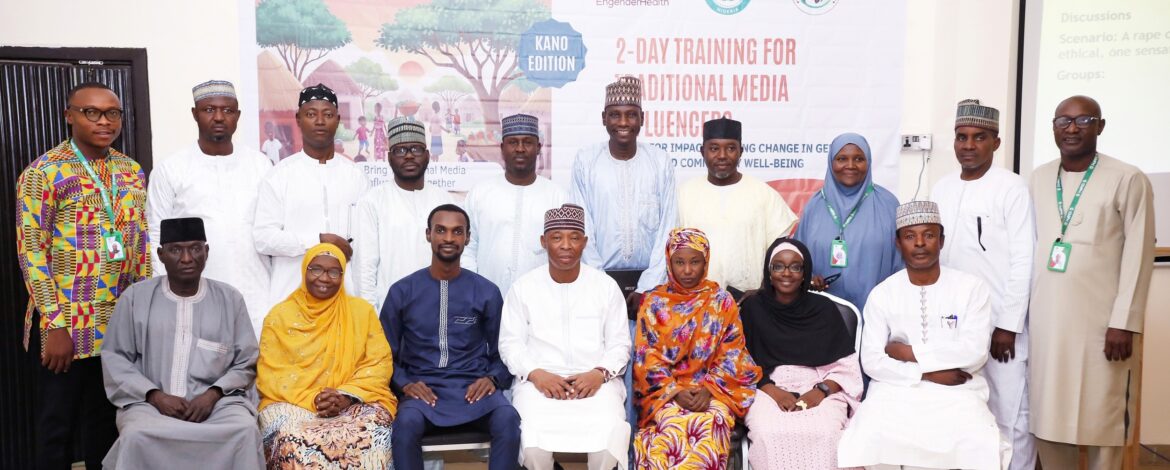The International Society of Media in Public Health (ISMPH) recently partnered with the Engender Health Consortium to deliver a comprehensive two-day capacity-building programme for traditional media influencers in Kano. The training focused on strengthening media engagement around Gender, Gender-Based Violence (GBV), Family Planning (FP), and Reproductive, Maternal, Newborn, Adolescent and Child Health (RMNACH) issues.
As an organization committed to advancing public health through strategic media engagement, ISMPH designed this programme to empower journalists and media practitioners with the tools needed to drive meaningful health communication and advocacy. Our approach centered on equipping participants to leverage their platforms for positive social change while upholding ethical reporting standards.
The training addressed several critical objectives aligned with ISMPH’s mission:
We emphasized the powerful role traditional media plays in shaping public perceptions and influencing health-seeking behaviors. Our sessions highlighted how evidence-based journalism can drive policy advocacy and improve health and gender outcomes across communities.
A significant component focused on responsible reporting practices—helping participants identify and challenge harmful stereotypes and stigmatizing narratives that often surround reproductive health and gender issues. We encouraged commitment to inclusive, sensitive, and dignity-affirming storytelling.
Our Executive Director, Mrs. Moji Makanjuola, represented by Programme Director Mr. Solomon Dogo, underscored ISMPH’s vision for this initiative: “We designed this training as a platform for sharing evidence-based perspectives that advance maternal, newborn and child health outcomes. The knowledge and frameworks we’ve shared will strengthen the capacity of media professionals to tackle critical health challenges facing our communities.”
Mr. Dogo emphasized the importance of multi-sectoral collaboration: “We need media advocacy that drives enrollment in contributory health schemes, promotes male engagement in family planning, and catalyzes broader improvements across our healthcare system. This training equips our media partners to be champions of these efforts.”
The programme received strong endorsement from key stakeholders. Atiku Mohammed Yola, Coordinator of Advocacy Solutions for Improved Primary Healthcare Outcomes (ASIP), and Mohammed Inuwa Shuaibu, Kano State Team Lead for the Legislative Initiative for Sustainable Development (LISDEL), commended ISMPH’s leadership in this space and urged participants to translate their learning into impactful reporting.
We were pleased to engage a distinguished cohort of media leaders, including Comrade Abubakar Adamu Rano, Managing Director of Kano State Radio Corporation; Bashir M. Bash, Bureau Chief of Blueprint Newspaper; Isiyaku Ahmed, Publisher of Stallion Times; Gambo Ahmed Mustapha of Muhasa Radio/TV; and Khadijah Abdullahi Yahaya of Arewa Radio, among others.
Dr. Nura Haladu facilitated the technical sessions, delivering comprehensive presentations on the media’s role in shaping public attitudes and influencing health policy, alongside detailed explorations of gender concepts, GBV dynamics, family planning approaches, and RMNACH priorities.
At ISMPH, we believe that well-informed, skilled media professionals are essential partners in achieving public health goals. This training represents our ongoing commitment to building these partnerships and creating an enabling environment for health-focused journalism across Nigeria.


